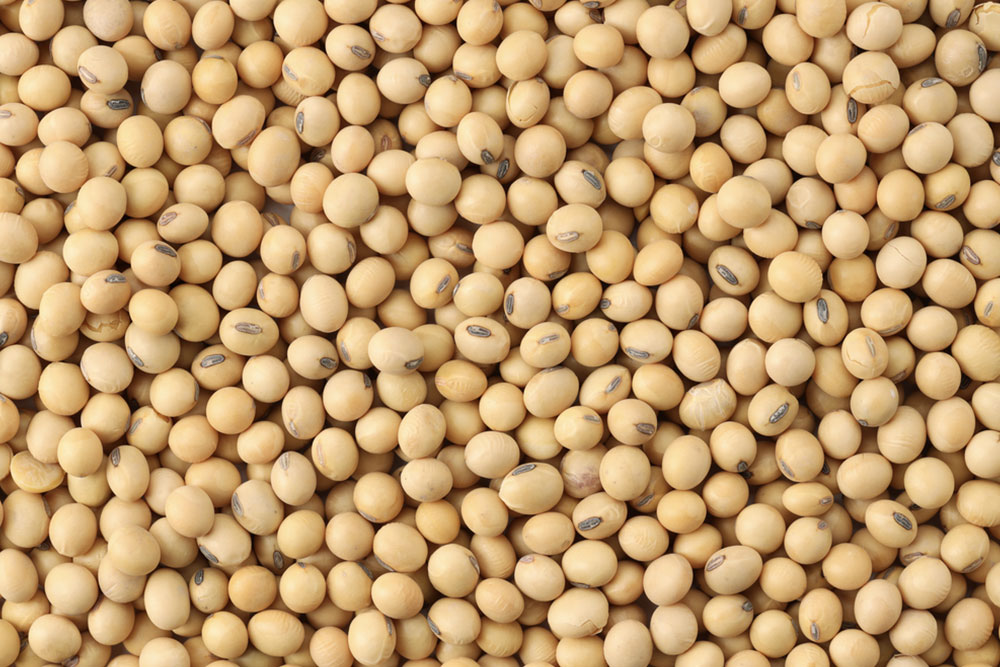
10 foods that help manage menopause symptoms better
Menopause is a natural part of a woman’s aging process. On average, it starts around the age of 51. The transitional period to menopause, also called perimenopause, may be accompanied by symptoms such as hot flashes, mood swings, night sweats, sleep and memory problems, heart palpitations, and decreased muscle mass. Increasing the intake of healthy fats, calcium, magnesium, vitamin D, and phytoestrogens helps manage these symptoms better. Foods rich in these nutrients are listed below.
Soy
Soy products like soy milk, tofu, tempeh, miso, soybeans, and edamame are rich sources of phytoestrogens (or plant-based chemicals similar to estrogen). Soy food products can help reduce hot flashes and night sweats in menopausal women. It is also a good source of high-quality plant-based protein and amino acids, which can help build muscle strength.
Whole grains
Whole grains, like steel-cut oats, barley, wheat, brown rice, bulgur wheat, popcorn, and millet, are loaded with fiber and B vitamins. These grains can help improve heart health and reduce the risk of cardiovascular disease. Nutritional experts advise eating at least 21 grams of fiber per day.
Fish
Fatty fish such as tuna, mackerel, and salmon are excellent sources of omega-3 fatty acids, protein, and calcium. Omega-3 fatty acids can help improve heart health and reduce the incidence of hot flashes and the intensity of night sweats in menopausal women. In addition, the quality protein content in fish can help build muscle mass, while calcium aids bone density.
Dairy
Hormonal changes during menopause lead to a significant loss of bone density. It is important to supplement this loss with calcium-rich foods like low-fat yogurt, milk, and cheese. Lactose-intolerant people or those allergic to dairy can also opt for calcium-fortified products like almond milk, cereals, and orange juice. Women between the ages of 19-50 should aim for 1,000 mg of calcium daily, while women above 50 should consume 1,200 mg of calcium daily.
Water
Staying hydrated can help reduce the intensity of symptoms like cramps. It can also improve the skin’s appearance and reduce bloating by moving fiber along the digestive tract. Those not enjoying drinking plain water can opt for water-rich foods like strawberries, watermelon, or soups. One can also try different flavors of water by adding ingredients such as lemon wedges, mint, cucumber slices, or other fruits.
Mangoes
Studies have shown that a regular intake of mangoes can help fight and reduce wrinkles, a common menopausal symptom. Mangoes are also a rich source of iron which can help reduce the risk of lifestyle conditions such as unhealthy BMI, diabetes, and heart disease. Mangoes have been reported to positively affect blood pressure by relaxing the blood vessels. They have also been linked with improved gut health because of their polyphenol content, which includes mangiferin, quercetin, gallotannins, and gallic acid.
Prunes
Prunes contain fiber, vitamins, and minerals such as vitamin K, magnesium, potassium, copper, boron, and polyphenols. Eating 5-6 prunes per day can help protect the bones in menopausal women by reducing the occurrence of inflammatory markers such as proinflammatory cytokines. Prunes have also been linked to preventing the risk of cardiovascular disease and reducing inflammation due to their antioxidant content.
Broccoli
Broccoli is a rich source of fiber, calcium, and antioxidants. It can reduce the risk of breast cancer in menopausal women and lower the occurrence of other symptoms, such as hot flashes and night sweats. Other cruciferous vegetables like cauliflower, kale, and Brussels sprouts can also help manage menopausal symptoms and inflammation better.
Eggs
Eggs are a good source of vitamin D, fiber, protein, and healthy fats. Vitamin D is crucial for calcium absorption in the body and can help improve bone structure. Eggs have also been shown to reduce cholesterol and the risk of heart disease in menopausal women.
Berries
Berries like blueberries, raspberries, strawberries, and blackberries are excellent sources of antioxidants, fiber, phytoestrogens, and other essential nutrients. Regular intake of berries can help reduce the intensity of hot flashes, sweating, sleep problems, anxiety, exhaustion, and concentration difficulties.
Other foods that can help women balance their hormones, fortify their health, and help with symptoms of menopause include garlic, citrus fruits (pineapple, orange, grapefruit), melons, mushrooms, bell peppers, and lean protein. Furthermore, avoiding processed foods is also important while dealing with menopause symptoms, as such foods lead to a spike in blood sugar levels.


